Amadeus (1984)
“That was God laughing at me through that obscene giggle.”
|
Synopsis: |
|
Genres, Themes, Actors, and Directors:
Response to Peary’s Review: I think Peary largely misses the mark in his overly harsh review. If the characters here don’t “vary”, it’s because they’re coherent protagonists in a compelling narrative (consisting of much more than simply “four basic scenes”) which shows the doomed trajectory of a brilliant but insolvent genius (Mozart) — and the lifelong regrets of the man (Salieri) who most fully recognizes Mozart’s gifts while simultaneously cursing God for giving them to such a “shockingly vulgar” young man. The actors’ American accents aren’t distracting, given they’re uniform across the production, and the occasional anachronisms can easily be forgiven if viewing this as a passionate tale of jealousy and revenge rather than a faithful historical biopic (which it’s not; it’s largely fictional). The flashback structure — in which aging Salieri, who has just attempted suicide, explains his “sins” to a priest — works well as a framing device for depicting an aging man coming to terms with his own inadequacies and failings: … but most importantly, we deeply understand the reverence both Salieri and Mozart held for music — and how challenging it was for each of them (in different ways) to rely on the charity of patrons to survive. Berridge is nicely cast as Mozart’s wife — one can see both why she’s chosen him as her partner, and how he causes her so much consternation. Meanwhile, the music throughout is — naturally — top-notch; conductor Neville Marriner only agreed to participate in the film if not a single note of Mozart’s music was changed. Redeeming Qualities and Moments:
Must See? Categories
(Listed in 1001 Movies You Must See Before You Die) Links: |
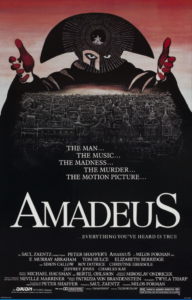
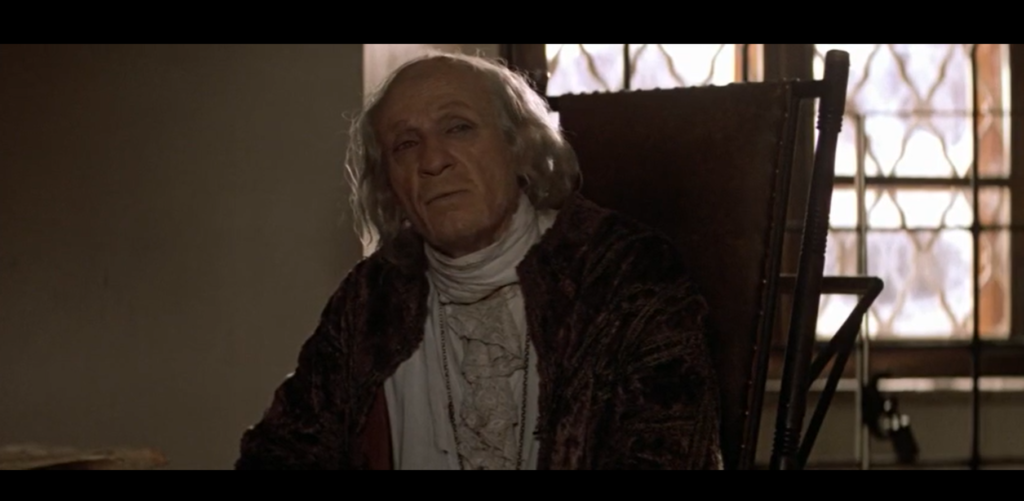
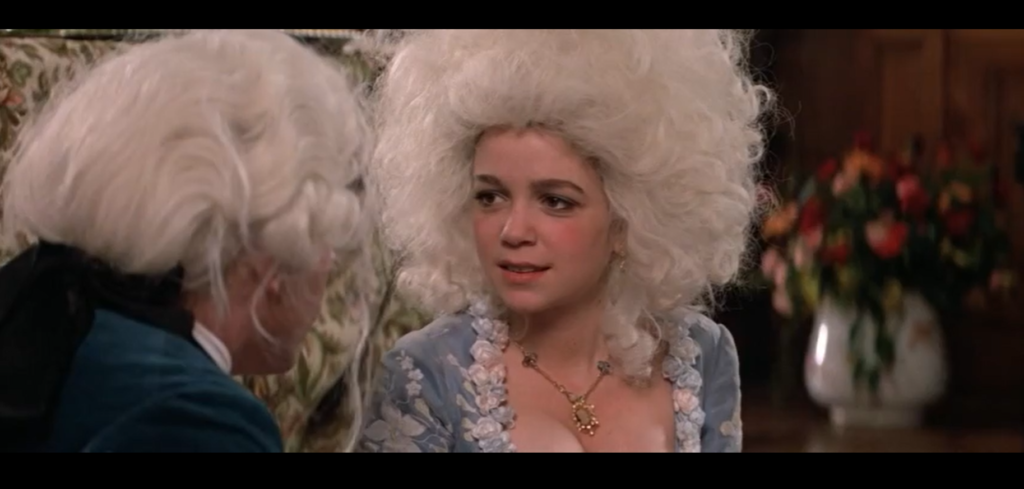
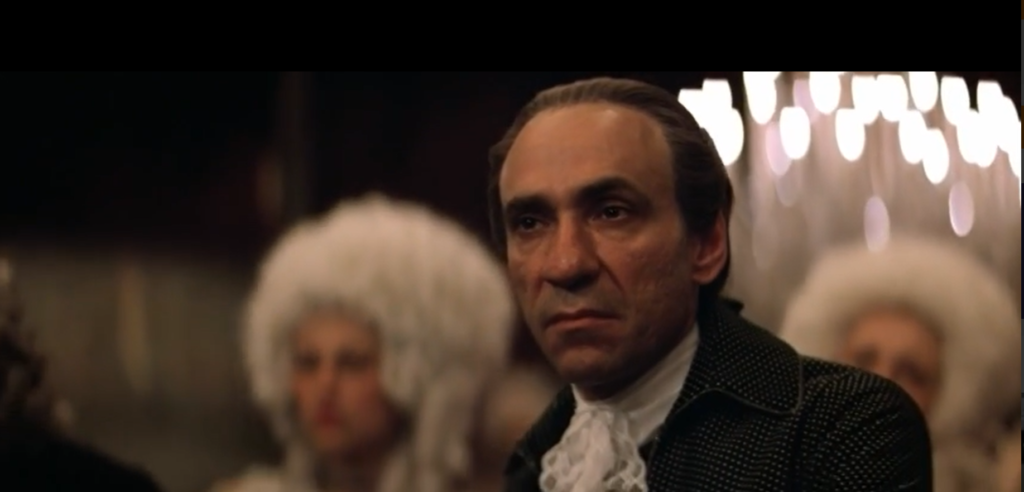
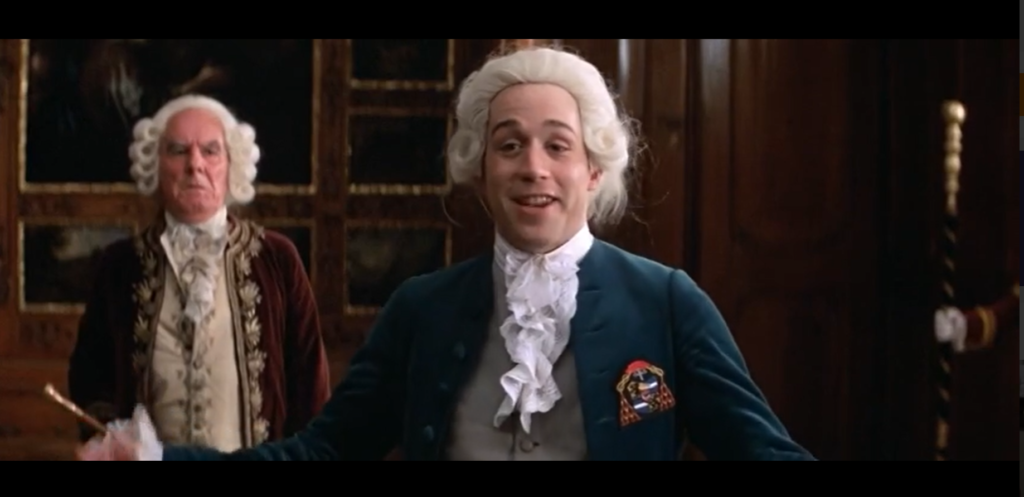
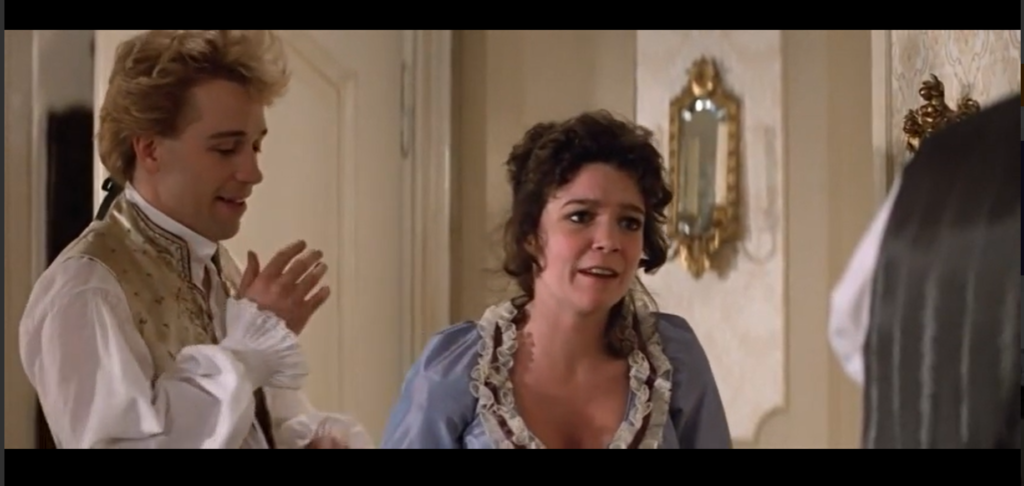
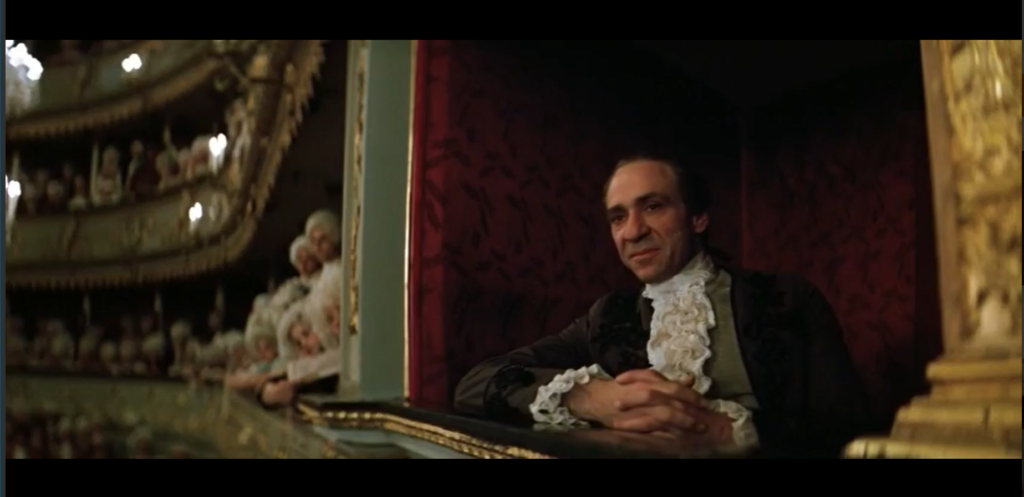
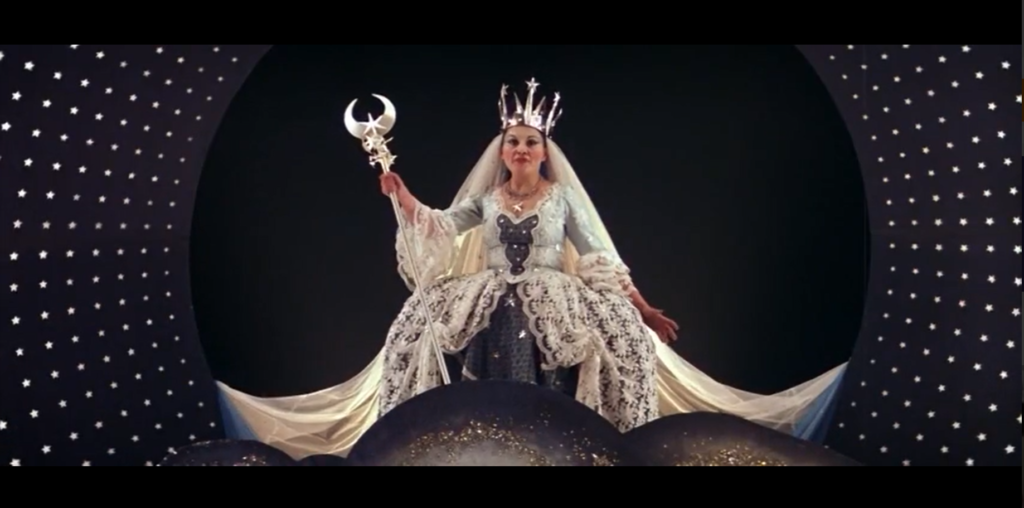
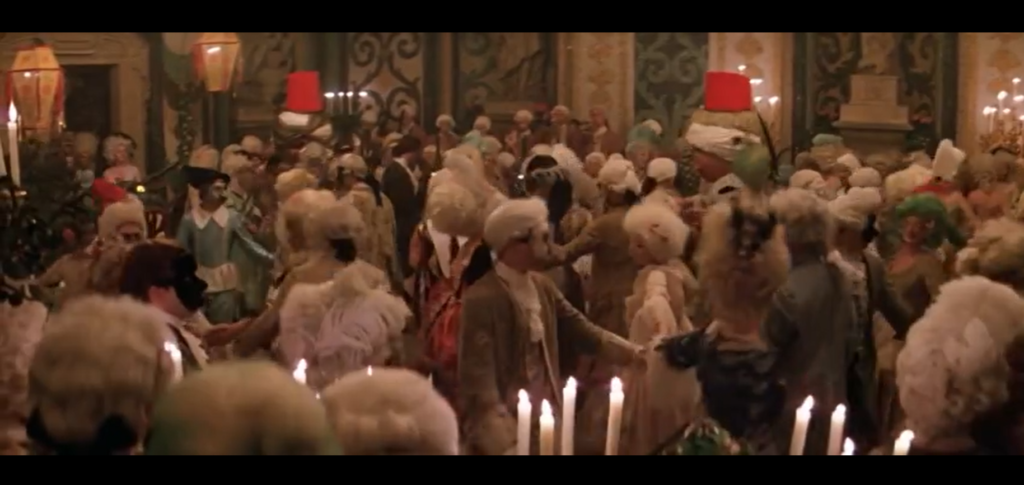
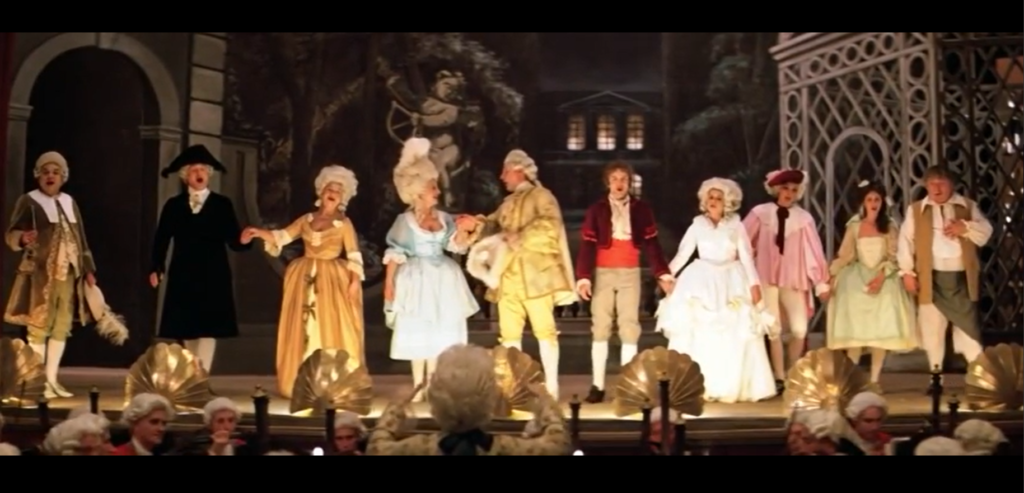
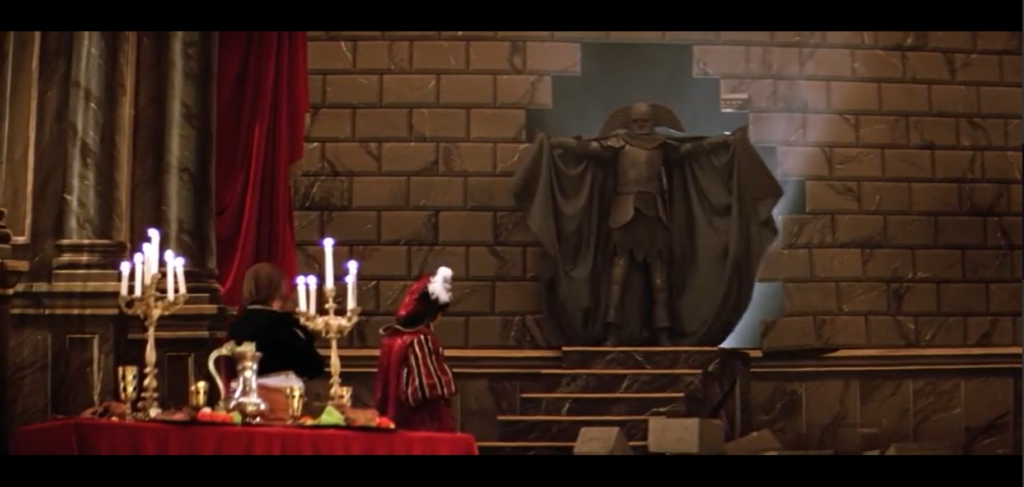
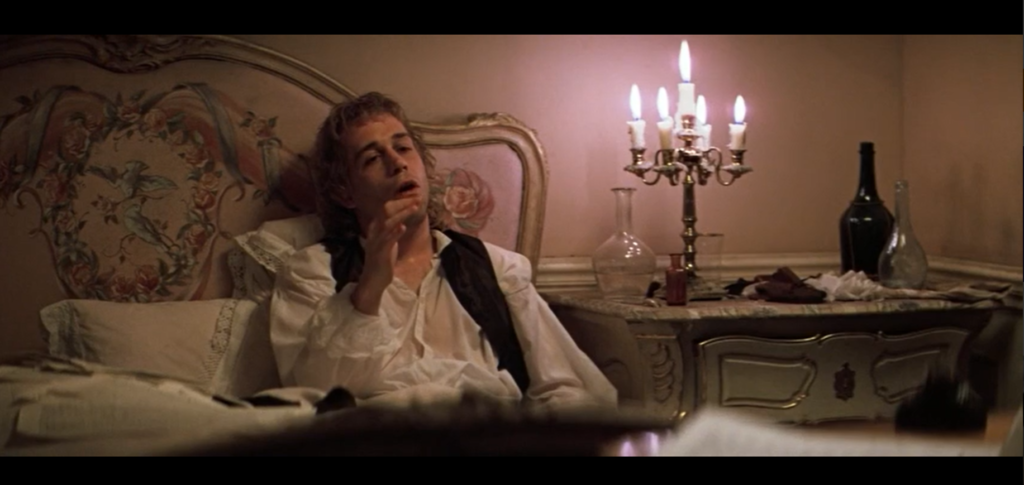
3 thoughts on “Amadeus (1984)”
⭐️⭐️⭐️⭐️ out of ⭐️⭐️⭐️⭐️
Historically this is utter and complete bollocks. But, it’s a superb film which is justifiably lauded as a classic of the era. It looks and sounds magnificent and is best seen in the 180 minute director’s cut which is a distinct step up on the 161 minute theatrical cut in that it embellishes events and characterisation. Elizabeth Berridge’s Constanza especially benefits.
A must.
Admin: Incidentally, Salieri was most definitely NOT a hack.
I’m in agreement that this is a must-see “as a noteworthy Oscar-winning film”. It’s certainly sumptuous, to say the least, and as expertly crafted as most of Forman’s Hollywood films (though I’ve not yet seen ‘Ragtime’ from start to finish).
However, for me… the thing about Forman’s Hollywood films (as opposed to his earlier films – which I think I generally prefer) is that I don’t ever get the urge to revisit them. They don’t seem to offer much by way of a repeat viewing.
‘Amadeus’, in particular, has definite (and particular) strengths – but, even so, it’s not among my favorite films (even though I admire it strongly).
Part of that may be because I was fortunate enough to see the original Broadway production (with Ian McKellen and Tim Curry in the leads) and, although I think Abraham and Hulce are (generally) fine in their roles, I’ll admit that I was much more taken with McKellen and Curry.